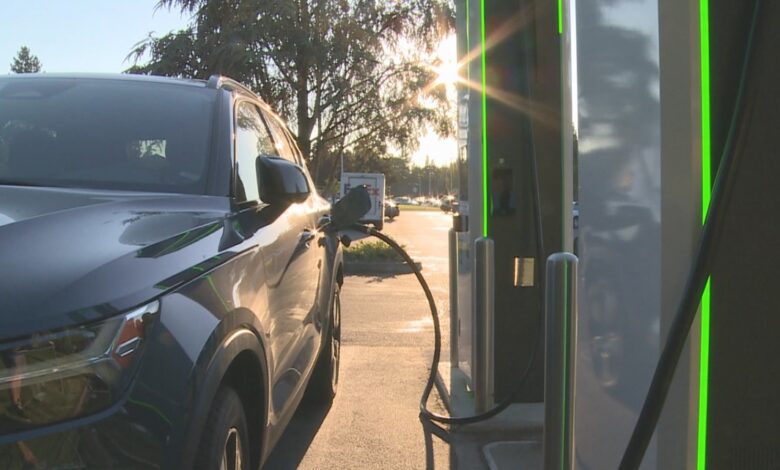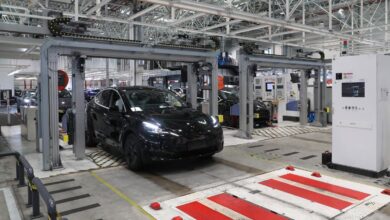What are the environmental benefits of electric vehicles?

Transportation emissions make up about 35% of greenhouse gas emissions in Oregon, according to Erica Timms with the DEQ.
PORTLAND, Oregon — Electric vehicles have been around for decades, but for many people, the concept is still new and some remain skeptical about whether EVs are better for the planet than gas-powered vehicles.
Combined with the rest of the world, the nation’s emissions are contributing to the fastest rise in global temperatures in the last 10,000 years. Transportation is one of the biggest sources of carbon emissions in the U.S.
“Transportation emissions make up about 35% of greenhouse gas emissions in the state,” said Erica Timm with the Oregon Department of Environmental Quality (DEQ).
Studies conducted by the Massachusetts Institute of Technology show that transitioning to electric vehicles results in a 30% to 50% cut in greenhouse gas emissions, contingent on how the electricity is acquired.
Timm said Oregon wants to be a leader in fighting climate change.
“The state also has greenhouse gas reduction goals and transitioning to EVs is a key way we can reach those greenhouse gas reductions goals,” Timm said.
The DEQ adopted Clean Cars Standards, which requires that all new passenger vehicles, SUVs and pickup trucks either be battery electric or hybrid electric vehicles. The agency says the rule will “provide cleaner air for all Oregon communities and result in significant reductions in greenhouse gas emissions.”
The EPA on electric vehicles
In March, the EPA issued its final rules aimed at cutting carbon emissions. The auto industry can meet the new limits if 56% of new vehicles sales are electric by 2032, as well as at least 13% hybrids or partially electric cars.
The EPA said the new standards will avoid over 7 billion tons of planet-warming carbon emissions over the next 30 years.
RELATED: EPA issues new auto rules aimed at cutting carbon emissions, boosting electric vehicles and hybrids
Advocating for going electric
Gary Exner has been touting the benefits of EVs for more than a decade. He is a member and former president of the nonprofit, Oregon Electric Vehicle Association.
“(Electric vehicles) have a higher carbon footprint out from the factory, but that debt is quickly repaid,” Exner said.
The carbon repayment is about a year, depending on the EV and where the power for the EV is coming from.
Oregon’s electric grid is one of the greenest in the U.S. and it will expand as major utilities are required by law to transition away from fossil fuels to renewable sources like solar, wind and hydro.
Mary Brazell with the Oregon Department of Transportation has spent decades educating people about EVs. she has focused on efficiency and the environment.
“EVs are three-and-a-half times as, or 3.4 times as energy efficient as gas-powered cars,” Brazell said. “So you’re using less energy, so not only is the energy you’re using cleaner, you’re using less of it.”
Oregonians spend about $6 billion a year to fuel vehicles, according to the Oregon Department of Energy in their Biennial Zero Emission Vehicle Report. The state doesn’t produce gasoline, so all of the money goes elsewhere. More EVs on the road, according to the state, would keep a chunk of that fueling money in the local economy.
Chris McGinness is a meteorologist and reporter for KGW News. Email him here and reach out on social media: Facebook, Instagram and X
VIDEO PLAYLIST: Good Energy



